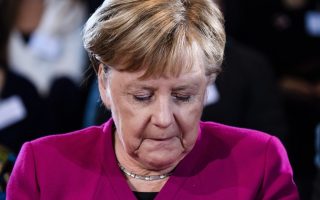ANEL departure seen as positive

Greece’s partners and allies regard the departure of Independent Greeks (ANEL) from the government coalition and the shake-up of the political landscape in this country in a positive light. It is clear that officials in Brussels and other major European capitals, as well as in many embassies in Athens, want to see the government remain in power until the Greek side ratifies the Prespes agreement with the Former Yugoslav Republic of Macedonia (FYROM), which they support, occasionally in a less than tactful manner.
For the international community, and Europe in particular, the latest developments in Greek politics are seen as a step in the right direction, as Independent Greeks is openly opposed to the deal. The truth is that the left and center-left parties of Europe had been unhappy with the coalition between leftist SYRIZA and right-wing nationalist Independent Greeks from the outset, regarding the junior partner as a necessary evil mandated by the balance of power in Parliament. Telling of this displeasure was Martin Schulz’s unveiled attack against the partnership with ANEL when he was president of the European Parliament, when he had described it as a party of the far-right.
After Prime Minister Alexis Tsipras was re-elected in September 2015, Europe’s social democrats had actively pushed for his SYRIZA party to join forces with the center-left in Greece, provoking reactions from PASOK and later from Movement for Change.
And it appears it is not just Europe’s center-left that has warmed to the leftist prime minister, as was evident during the recent visit to Athens of German Chancellor Angela Merkel, who was unexpectedly warm toward Tsipras both on and off camera, both because of his turnaround in the summer of 2015 and his ongoing staunch support for the Prespes deal.
Greece’s allies in Europe, but also the United States, have often underscored the importance they attach to the accord not only for the normalization of ties between Greece and FYROM, but also for promoting Balkan stability and stemming “other influences” in the region. They have even gone so far as to describe it as a “model” for the resolution of other similar disputes in the region, and it is through this prism that they are currently assessing Greece’s politicians. No matter how right or fair this reality might be, this is the environment the latter have to act in right now.





